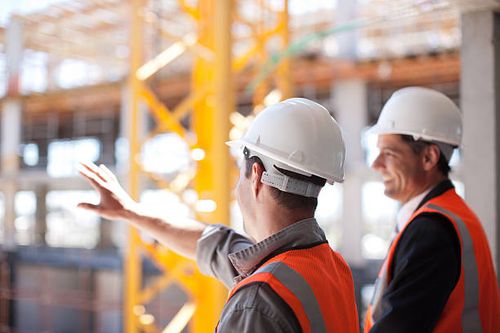The UK construction industry faces scrutiny over health and safety, quality control, workforce management and sustainability. Recent developments, such as the UK’s net zero targets and stricter building safety regulations following the 2017 Grenfell Tower fire, have placed further emphasis on high standards. With the introduction of the Building Safety Act 2022 and growing concerns over environmental impact, construction firms must stay ahead by ensuring compliance, improving workmanship and integrating sustainable practices.
We explore strategies to help UK construction businesses uphold standards in an evolving landscape.
Maintaining health and safety compliance
The UK construction industry has made significant progress in improving site safety, but it remains a hazardous sector. Recent updates to the Construction (Design and Management) Regulations 2015 require stricter oversight of health and safety measures, especially regarding high-risk activities.
Regular safety audits identify risks and ensure compliance with new regulations. Tools like the Health and Safety Executive (HSE) site inspection checklist support ongoing safety monitoring.
Keeping up to date with legislation is vital. For instance, the 2022 Building Safety Act mandates stricter compliance for high-rise residential buildings, with severe penalties for non-compliance.
There are other safeguards. Although on-site workers are not legally required to hold a valid Construction Skills Certification Scheme (CSCS) card, most contractors and builders expect their workers to carry one.
By implementing regular training and audits, construction businesses can mitigate risks and ensure the safety of their workforce and the public.
Ensuring high-quality workmanship
Inconsistent workmanship can lead to costly construction delays and reputational damage. You need to invest in ongoing training, define quality benchmarks for your teams and conduct inspections throughout the building process.
Leveraging modern technologies, such as Building Information Modelling (BIM), can enhance precision and collaboration, contribute to higher-quality outcomes and reduce errors.
Using certified, high-quality materials delivers durable, reliable builds. Ensure that you regularly evaluate suppliers and materials, so they meet both client expectations and industry standards.
Implementing efficient HR and workforce management
From recruitment to retention, ensuring staff are adequately trained, certified and motivated can directly impact project success.
Digital platforms that track employee certifications and performance, such as HR software, maintain compliance and improve efficiency. A good HR system can also streamline payroll. This ensures that only qualified staff are deployed on-site, reducing the risk of errors or safety breaches.
Offering competitive wages, career development opportunities and employee benefits can help retain skilled workers in a competitive industry.
Sustainability and environmental standards
The UK government’s commitment to achieving net zero emissions by 2050 has led to tighter regulations and standards on waste and energy use in construction. By adopting waste reduction strategies, such as recycling on-site materials, you can significantly reduce costs and environmental impact.
Using eco-friendly materials, such as timber from sustainable sources, or implementing energy-efficient technologies like solar panels, can help your business meet sustainability goals while improving energy efficiency in new builds. BREEAM certifications provide formal recognition of a project’s sustainability credentials. Achieving ISO 14001 (Environmental Management Systems) certification can showcase your company’s commitment to reducing environmental impact.
Sustainability is not just a regulatory requirement; it offers construction firms the chance to differentiate themselves in a competitive market.

